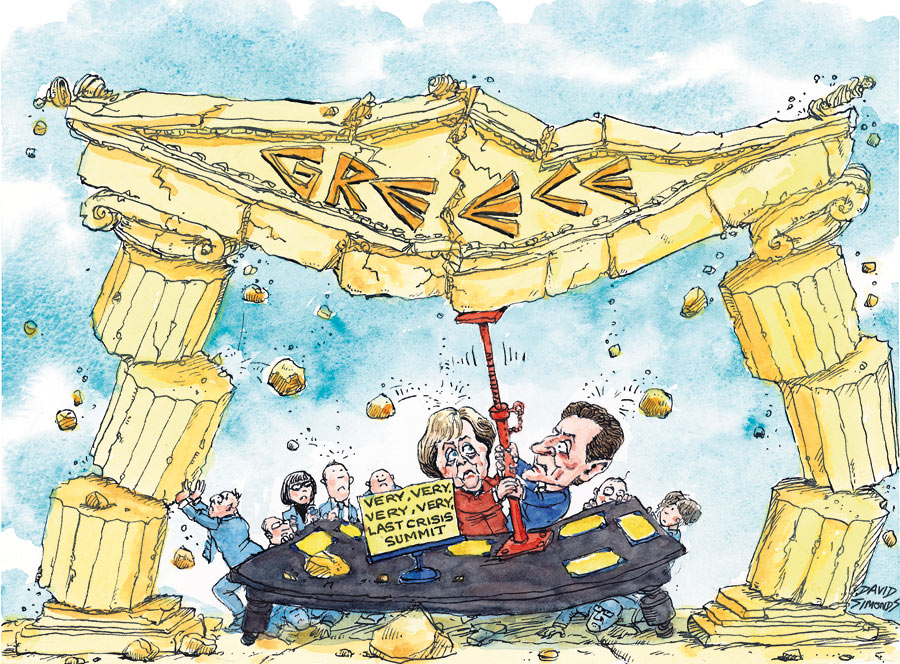Does Europe need to save Greece:
Anders Borg writes: The fundamental problem underlying Greece’s economic crisis is a Greek problem: the country’s deep-rooted unwillingness to modernize. Greece was subject to a long period of domination by the Ottoman Empire. Its entrenched political and economic networks are deeply corrupt. A meritocratic bureaucracy has not emerged. Even as trust in government institutions has eroded, a culture of dependency has taken hold.
The Greeks, it can be argued, have not earned the right to be saved. And yet a Greek exit from the euro is not the best option for either Greece or for the European Union. Whether or not the Greeks are deserving of assistance, it is in Europe’s interest to help them.
The OECD, the European Commission, the International Monetary Fund, and the World Bank have emphasized, in report after report, the fundamental inability of Greece’s economy to produce long-term sustainable growth. The country’s education system is sub-par and underfunded. Its investments in research and development are inadequate. Its export sector is small. Productivity growth has been slow.
Greece’s economy struggles to reallocate resources, including workers, given the rigidity of the labor market.
After Greece was allowed to enter the eurozone, interest-rate convergence, combined with inflated property prices, fueled an increase in household debt and caused the construction sector to overheat, placing the economy on an unsustainable path.
In the eight years that I served on the EU’s Economic and Financial Affairs Council, I worked alongside seven Greek ministers, every one of whom at some point admitted that the country’s deficit numbers had to be revised upward.
And yet, as bad as Greece’s economy and political culture may be, the consequences of the country’s exit from the euro are simply too dire to consider. European values at stake in that decision trump any economic considerations.
For starters, a Greek exit from the euro would be a devastating blow to Greece. Without the support of the European Central Bank, the country’s banking system would be shut off from international markets.
To make matters worse, the economic crisis could lead to a political meltdown, making it impossible to enact the structural reforms that Greece desperately needs.
Europe also needs to consider the geopolitical environment. Increased tension caused by the conflict in Ukraine risks destabilizing other parts of the continent. Expelling Greece into such an unstable international environment would leave the region more vulnerable to those – particularly Russia’s current leaders – who believe they would benefit from a weaker, less unified Europe.
There are more important questions raised by the crisis in Greece than whether the country deserves to be rescued by European taxpayers. At stake are fundamental values and strategic considerations that are central to the European project. Europe is simply more European with a stable partner in Athens.

